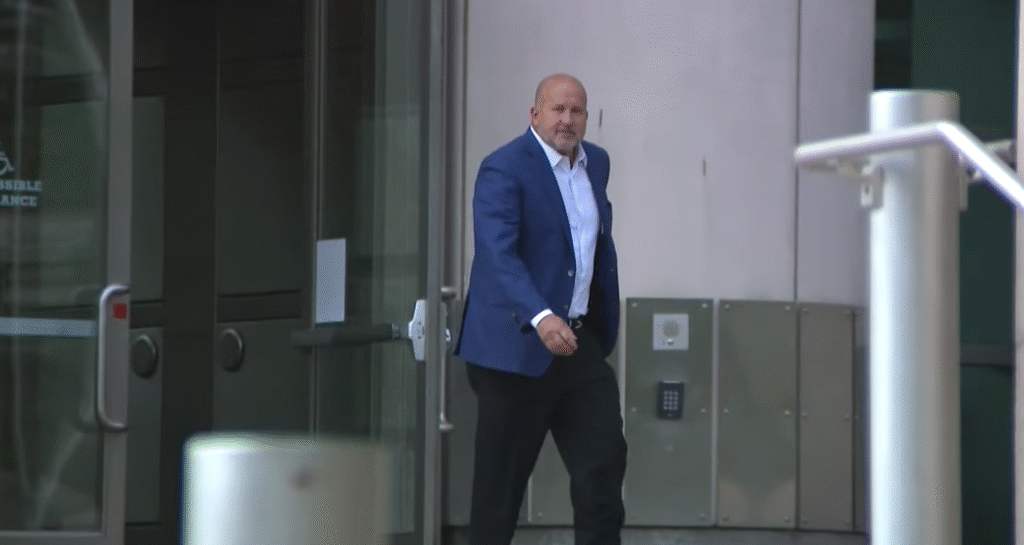In Missouri politics, John Diehl’s career path is remarkably reminiscent of a Greek tragedy, in which the protagonist’s fate is sealed by bad decisions, ambition drives momentum, and scandal scuttles advancement. Previously a highly effective Republican leader with significant clout within the statehouse, he now awaits sentencing for federal fraud, a remarkably dramatic development considering his prior standing as a seasoned political strategist.
In Town and Country, he chaired election boards, conservation commissions, and served as an alderman before beginning his steady ascent through civic service. He gained a seat in the Missouri House of Representatives by 2008 thanks to his adeptness at policy maneuvering and networking. He gained legislative influence over time, and in 2015 he was elected Speaker of the House, making him one of the most influential people in state government. The extent of his influence at the time led observers to speculate that he might be headed for higher office, possibly even governor.
However, ambition is brittle if it is not supported by self-control. After confessing to sending a 19-year-old intern sexually explicit texts, Diehl abruptly resigned in May 2015, just four months into his speakership. The scandal, which made headlines, was vividly reminiscent of Anthony Weiner’s collapse on the national scene. Rather than failing policies, both men wasted their careers by making poor decisions that led to public mockery. The resignation was presented by Diehl as a move to rebuild trust, but it was too late—his career abruptly fell apart.
Table: John Diehl – Key Bio and Professional Information
| Category | Information |
|---|---|
| Full Name | John J. Diehl Jr. |
| Born | August 28, 1965, St. Louis, Missouri, U.S. |
| Age | 60 |
| Political Party | Republican |
| Education | University of Missouri (B.A. Political Science), St. Louis University (J.D.) |
| Career | Attorney, Politician, Former Speaker of the Missouri House |
| Missouri House Tenure | 2009 – 2015 |
| Speaker of the House | January 2015 – May 2015 |
| Major Controversies | 2015 sexting scandal, 2023 campaign finance violations, 2025 wire fraud plea |
| Spouse | Kelly |
| Children | Sam, Josh, Daniel |
| Scheduled Sentencing | December 19, 2025 (wire fraud case) |
| Reference Link | John Diehl – Wikipedia |

Diehl decreased his public persona for years, but he never completely vanished. He reappeared in 2018 as a cobalt mining entrepreneur in Bootheel, Missouri, promoting the project as an especially creative way to provide minerals for electric cars. Despite its ambition, it undermined his political credibility and sparked concerns about environmental oversight. Later, his name was back in the news due to FBI investigation into a demolition contract for an Independence power plant. Despite the fact that he was not charged, the association maintained a story about his recurrent moral lapses that followed him outside of the legislature.
Diehl’s guilty plea in September 2025 to defrauding the U.S. government of almost $380,000 in pandemic relief funds was the most recent setback. He used the money from the Economic Injury Disaster Loan to pay for personal expenses like a Tesla, Audi, and Jeep; mortgage payments; country club dues; pool upkeep; and even a family member’s college tuition, according to the prosecution. When viewed over a number of years, his actions demonstrated a pattern of misuse rather than a single incident. Deliberate intent was further demonstrated by the revelation that he had transferred substantial sums of money into his personal retirement plan.
Missourians were reminded of the fine line that separates personal benefit from public duty, and the impact of the news was particularly evident. The severity of federal wire fraud, which carries a maximum sentence of 20 years in prison, is not diminished by Diehl’s repayment of the money, observers pointed out. The legal outcome of his sentencing on December 19, 2025, as well as the message it conveys regarding accountability for prominent individuals, will be closely monitored.
Its wider significance is what gives this story resonance. Because of his previous position as Missouri’s Speaker, Diehl’s case is unique among pandemic fraud cases that have involved attorneys, business owners, and even entertainers in recent years. The demise of a man who was tasked with establishing ethics and tax laws highlights how easily public confidence can be undermined when leaders fall short of their own expectations. It is reminiscent of the fall of Rod Blagojevich, the governor of Illinois, who also went from high office to criminal court. Both serve as a reminder that even the most powerful people can ruin themselves through unbridled ambition and moral compromise.
Despite the disappointment, some people find the result encouraging. Diehl’s guilty plea and repayment demonstrate that legal systems can operate fairly, in contrast to situations where individuals in the public eye avoid responsibility. Even if an officeholder’s influence once seemed untouchable, his downfall might be especially helpful in reaffirming that no one is above the law. Young voters who are wary of politics might find this clarity to be a reminder that wrongdoing is not always tolerated.

